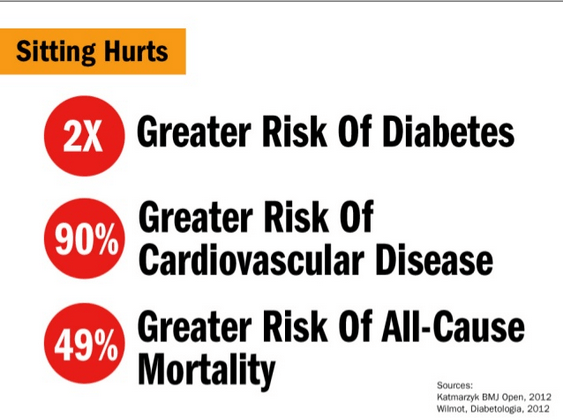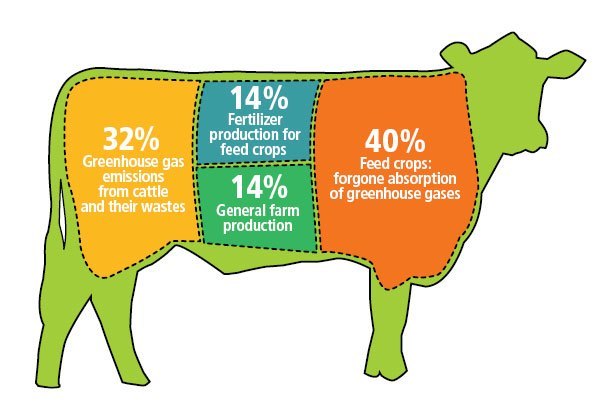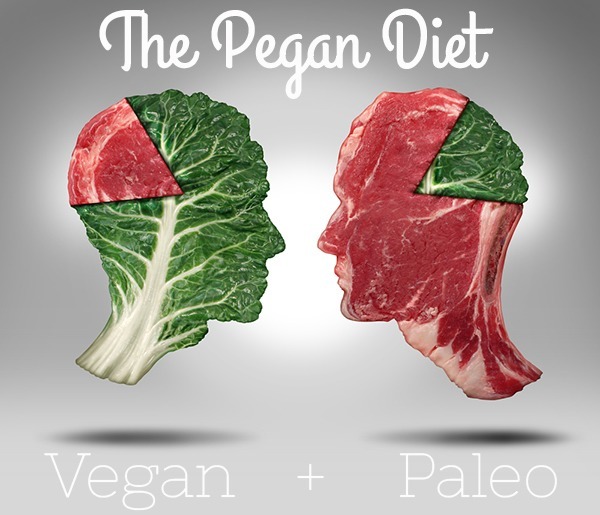
In an attempt to rectify many years of pseudo nutritional recommendations by the good old FDA, the feds are finally taking things seriously.
A new report by the Dietary Guidelines Advisory Committee (DGAC) of dietary recommendations has been released.
Detailed in the 571 page document, as reported by the Washington Free Beacon (2) include soda taxes, electronic monitoring on how long people sit in from of their televisions and stricter guidelines on meat consumption.
While there have been a number of positive recommendations, and better reflections on recent science debunking the cholesterol myth, the report still begs the question, has prohibition ever worked?
Can we tell the American people to stop drinking pop and spending hours in front of the television without a massive uprising. After all, sugar is an addiction (3).
It’s like taking a bottle of whiskey away from an alcoholic and expecting them to accept their sober fate, we know from history that certainly doesn’t work.
While its sobering to come to your own terms that the standard american diet is incredibly unhealthy (4), its a little different when somebody else forces you to adhere to certain standards.
The report details Americans should eat less meat as it contributes to global warming. This could change the entire system of nutritional programs and food stamps in the country.
There aren’t many people who wouldn’t be affected by changes in this domain, including the large agricultural industries providing the genetically modified corn and soy the processed food industry thrives on.
It also questions just how sustainable meat consumption is and that we should do so with moderation, less for our own health and more for the health of the planet (5).
And so drastic times call for drastic measures, the government seems to be taking peoples health a little more seriously, although I doubt the bill questions the long term effects of GMO’s and pesticides (6).
It certainly does pull into question what exactly is making Americans fall prey to obesity and diabetes.
The War on Obesity
Unlike the war on drugs or terror, it’s hard to imagine someone being jailed for non-compliance with these potential health regulations.
The recommendations do bring to light certain aspects contributing to obesity, diabetes and other chronic health problems.
Cholesterol
The long time villain is finally being freed from its bad rep. Times of old recommended avoiding cholesterol at all costs, healthy foods like avocados and egg yolks were touted as artery clogging evil villains (7).
Now we know better, there’s finally a large enough body of research that the government can’t ignore the fact that cholesterol is a healthy and important part of a normal diet (8)(9). Naturally a diet rich in plant foods and low in processed junk will have a healthy balanced level of cholesterol.
What the research shows is that fat is healthy for us, saturated fat is as important as any other and cholesterol isn’t inherently bad (10)(11).
For anyone whose being following the recommendations of the food pyramid this is heresy. While the new recommendations are far from perfect, they’re getting closer to the scientific truth.
What is The Sitting Disease

A sedentary lifestyle leads to chronic illness in all forms, on average most of us sit for 12 hours out of the day. A far cry from the active lifestyles of our ancestors.
The solution? Strict time limits for people to sit on the couch and watch TV. Perhaps they’ll even invent mandatory couches that propel you off when the time limits up? Darn, we’ll all be forced to watch CNN standing up!
But seriously, it is important to address this fairly recent illness as it could do a lot of damage. There’s already a boom in people calling for access to stand up work stations fully equipped with treadmills under foot and adjustable desk tops (13).
While the government is obviously playing catch up with the science thats been out for years, most Americans are still fairly shocked by these findings.
Sugar

Its a strange world we live in where healthy foods, vegetables and fruits are more expensive than their unhealthy counterparts, though not by as much as you might think (14).
If the government chooses to enforce the recommendations of taxing high sugar foods and soda perhaps there should be a way they can work to make healthy foods more accessible.
This is feasible if the taxes from the sugar laden junk are then funnelled back into subsidies for fruit and vegetable producers.
Otherwise people are put in quite the pickle as the fight to sustain ourselves in an ever growing state of economic division between rich and poor escalates (15).
Healthy options need to be available at a lower cost than unhealthy foods, period. If this bill does nothing but raises taxes on sugar and funnel the profits elsewhere then it won’t do much good.
Most people know sugar isn’t healthy and high fructose corn syrup is even worse (16), but when you need to stretch your dollar most people resort to processed food.
Embracing a Plant-Based Diet
The benefits of a plant based diet are undeniable, embracing a diet rich in plant foods is the most necessary step the government could take to fight unnecessary illness.
How can a society function at its highest capacity when the citizens are deficient in essential nutrients?
We assume vegetables to be boring only because we haven’t been brainwashed with commercials of roasted carrots doused with butter and herbs, quite the opposite indeed.
In order for people to embrace plant based diets the paradigm needs to shift, and surprisingly the proposal accepts that.
They call for less commercials promoting unhealthy foods, which would do a lot to change the common mentality.
Or have a realistic healthy woman eating a big salad instead of super sized french fries.
The modern farmer isn’t exactly what most youth aspire to be. How would that shift if we were to teach gardening in schools? If the media were to reflect just how amazing and liberating it is to grow your own food.
We’re at a crux, on one end of the spectrum home farmers are being villainized and growing your own food has even been made illegal in some places (17).
On the other end of the spectrum this is what the American people, and the world needs more than anything. We see these huge movements to urban gardening, rooftop gardens popping up in big cities.
Seattle is now home to the nations largest public food forest which uses organic permaculture principles to create and abundance of food (18).
I’m willing to bet that if the youth of today were being shown Scarlett Johanson or Miley Cyrus chowing down on organic green smoothies and digging in the dirt that they would think it was more hip and cool to be healthy.
Unfortunately this isn’t the image that’s portrayed in the mainstream media machine. Hopefully the recommendations to reduce the amount of commercials for processed foods will go through.
It’s important to note how susceptible we are to these types of programming (19).
Meat and Global Warming

Global warming is far from being caused by our meat consumption, and don’t be fooled into thinking tofurkey is a better way to go.
Soy is a huge industry in constant expansion, a popular pseudo healthy meat replacement in the vegetarian world, soy has just as many implications in global warming as meat does (20).
Deforestation is caused because of these rapidly expanding agricultural industries. Forests are clear cut to make way for gmo soy crops which only devastate the soil and ecology over time making the land dead and infertile (21).
Conventional practices for raising cattle produce a large amount of methane which adds to global warming. These practices aren’t sustainable or humane and its right that they should be questioned.
One thing to consider is that cows didn’t evolve to eat grain, they’re meant to graze and eat grass (22).
Its been shown that proper implementation of free range cattle is actually of benefit to the ecology of the land when done correctly.
Michael Pollan makes a case for Management Intensive Grazing (MIG) in his book the Omnivores Dilemma. This type of grazing method mimics those of traditional European practices (23).
The implications would contribute to restoring the land and bringing back microbial and plant biodiversity.
Is it possible on a large scale? Certainly, but the shift would take patience, much of America’s ranch land has been overgrazed and rehabilitation will take time (24).
Fortunately we have a much greater land mass than Europe, if they can do it so can we!
“While methane is a more potent greenhouse gas than CO2, there is over 200 times more CO2 in the atmosphere. Hence the amount of warming methane contributes is 28% of the warming CO2 contributes.”(25)
However this data presents itself I think its safe to say the time has come to move away from meat being the predominant food group.
Meals should be mostly vegetables and if one chooses to eat meat, it should be sustainably raised, grass-fed and served as a side not a 18 oz steak like we’re accustomed to.
Nutritionally there’s a big difference between feed lot conventionally raised beef and free range beef. Cows fed a natural grass diet have higher levels of omega-3 fatty acids and anti-inflammatory stearic acid (26).
Going on the Pegan Diet

While these two lifestyle choices may seem like complete opposites, they actually have more in common than you think. Both are based in consumption of whole foods, plenty of fruits and vegetables and an all around healthy lifestyle.
Many think of paleo as being entirely meat focused, though this may be true for some the actual goal is to eat in alignment with what our ancestors ate.
This is a pretty broad statement considering no two indigenous groups ate the same things. While northern tribes would have more meat in their diet to sustain them through winter, the Southern bands would eat far more greens and available fruits and grains.
The pegan lifestyle takes a more plant based approach similar to veganism yet with the nourishing addition of high quality meat and eggs.
Instead of the steak being the main feature we might have three other vegetable dishes and a smaller portion of steak on the side. With the greater emphasis on vegetables we’re more apt to actually meet our nutritional needs and prevent illness and inflammation.
Top 10 Benefits of a Pegan Diet
1. Cleansing
With over 300 known environmental pollutants in the air and water (28)(29), it’s more important than ever to give our eliminatory organs a bit of help.
Cleansing and removing toxins from the body is much easier when our bodies are equipped with the right tools.
Eating a whole foods diet high in vegetables, fruits, healthy proteins and a low glycemic load is a really good way to give our liver a break and help the cleansing process along.
2. Nutrient Dense
Our food is only as good as our soil, when the soil becomes depleted of nutrients after years of conventional farming, so does the food we eat.
We used to get a lot more nutrients out of a carrot or an apple, nowadays we have to eat more plant foods to get the same amount of nutrients as our forebears.
That’s why juicing and green smoothies are such a healthy addition as they provide an abundance of nutrients in an easy to consume drink.
3. Better for the Environment
As we discussed above, meat production can help to rebuild soil and biodiversity, but it has to be done right.
Unfortunately the mass production of feedlot animals is still in high gear, until that shifts it’s best to stick to meat you can trust.
This usually means eating a bit less because lets face it, free range organic meat isn’t cheap. Quality over quantity comes into play. Shifting the focus from meat to vegetables is a natural transition to a more sustainable planet.
4. Rich in Antioxidants
Antioxidants are the cancer fighting, free radical blasting nutrients rich in highly pigmented plant foods.
More important than ever, antioxidants come to the rescue to heal and protect our cells from environmental toxins. They help slow ageing and reduce chronic inflammation which is associated with nearly ever disorder.
5. Less Expensive
Since we’re highlighting the importance of eating high quality pastured meats it’s not realistic that the average person can afford these to be the bulk of their diet.
Instead, stock up on local fruits and vegetable, buy in bulk when foods are in season and freeze, ferment or dehydrate. In this way you can eat really well, without spending an arm and a leg.
6. Weight loss
It’s a given that if you’ve got weight to lose and you start to emphasize plants as the largest component of your diet, you’ll easily lose weight.
Transitioning to a more nutrient, fiber, antioxidant, mineral rich diet will curb cravings for sugar and unhealthy processed foods.
It’ll also give you more energy to get out and exercise and enjoy life. You don’t have to count calories or restrict pleasure, you can just eat more plants and naturally shed excess pounds.
7. Fights Chronic Disease
Chronic disease stems from chronic inflammation, which stems from poor dietary and lifestyle choices and high stress.
The best way to naturally reduce inflammation is to consume more antioxidants and equip your body with the vitamins and minerals it needs.
8. Healthy Skin
Our skin is a mirror to our internal state of health, when we consume junk our skin shows it. When we lack essential omega fatty acids and healthy saturated fats our skin suffers, antioxidants are also important for getting that natural glow.
A pegan diet rich in the right fats and dense in nutrients is a recipe for beautiful skin.
9. Improved Digestion
So many of us suffer from poor digestion, it comes with the territory of a high sugar highly refined diet.
Our gut health suffers from lack of probiotics, not enough fiber and high stress lifestyles.
Healing poor gut health is one of the biggest factors in finding more energy and better overall health. A diet rich in vegetables and fruits will naturally help improve digestion.
10. Best of Both Worlds
While both paleo and vegan have their distinct virtues, combined they are a powerhouse. Some people feel badly about eating meat because of the way its raised, this is alleviated when we only support truly high quality free range meat production.
There are various studies showing promising aspects of both vegan and paleo diets, we know that its a little harder to get all the necessary nutrients on a purely vegan diet.
We also know that the high amounts of plant matter vegans eat contributes to far less chronic disease and inflammation. Combining the two lessens the environmental impacts and highlights the health benefits inherent in both lifestyles.
A Step in the Right Direction
There seems to be some positive changes in the proposed changes to the nations nutritional guidelines. Empowerment comes through education, so forcing more rules down peoples throats is unlikely to work without viable alternatives.
Healthy living should be accessible and for so many people it just isn’t. As society trickles into the funnel of sustainability, solutions need to be implemented.
Neither conventional meat production nor massive agricultural growth are very sustainable.
Moving towards a plant based diet and active lifestyle for the general population is completely accessible, so long as we make it a priority. Then the health of humans and our planet will truly prosper.

